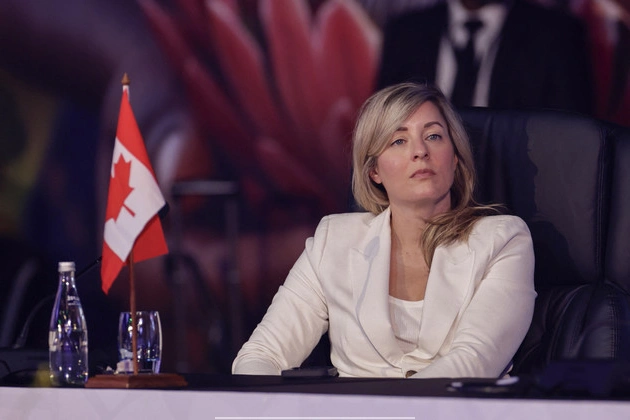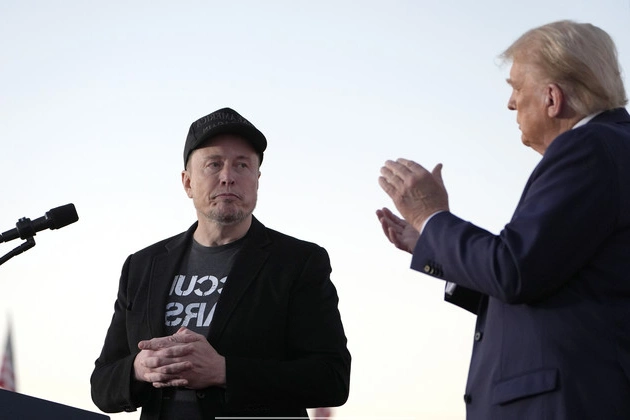
Canada Considers Energy Supply Response to Potential US Tariffs
Canada is contemplating the drastic measure of severing its energy supply to the United States if President-elect Donald Trump imposes significant tariffs on Canadian goods. Prime Minister Justin Trudeau remarked, “Everything is on the table,” following discussions with Canada’s provincial and territorial leaders.
The possibility of cutting off energy exports to the U.S. and imposing export tariffs on Alberta energy and other products has been a topic of public and private discourse among federal government officials. Alberta Premier Danielle Smith refrained from endorsing a joint statement with other leaders, signaling a lack of unity in response to the impending economic threat from Trump.
As the largest energy supplier to the U.S., Canada provides about 60 percent of crude oil imports and a significant portion of natural gas, electricity, and uranium. Trump’s threat of imposing 25 percent tariffs on Canada is linked to concerns about fentanyl and illegal migration at the shared border, issues that Trudeau argues are minimal compared to the overall crossings and seizures.
In response, the Liberal government has allocated a C$1.3 billion package for enhancing border security. Despite ongoing talks between Trudeau’s administration and the incoming Trump team, premiers of key oil-producing provinces warn of a potential national crisis should Ottawa leverage Canadian oil in response to tariffs, deepening the divide between Eastern and Western Canada.
Pressure is mounting on Trudeau to call for a federal election to strengthen his mandate in negotiating with Trump. Amidst leadership transitions within the Liberal Party, some premiers are taking a more assertive stance in tariff discussions. Smith’s interactions with Trump have raised concerns about impending tariffs, with accusations from Trudeau’s government of compromising Canada’s interests.
Ontario Premier Doug Ford, overseeing substantial trade with the U.S., emphasized unity during trade negotiations by sporting a cap that read “CANADA IS NOT FOR SALE.” Maintaining a united front is crucial, given the potential economic impact of tariffs.
With energy resources playing a strategic role, Newfoundland and Labrador Premier Andrew Furey sees energy as Canada’s key asset in potential negotiations. Quebec Premier François Legault highlighted the negative consequences of a trade war on both American consumers and businesses, warning against the adverse effects of tariffs.
The Canadian Chamber of Commerce cautions that widespread tariffs could push the Canadian economy into a recession. As preparations for negotiations intensify, leaders have pledged to utilize any additional revenue from retaliatory measures to support Canadian workers and businesses, while also focusing on defense spending, energy projects, and border security enhancements.















